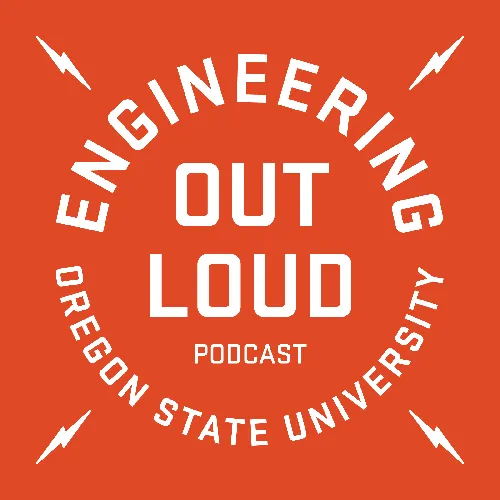
Engineering Out Loud
From the College of Engineering at Oregon State University, this is "Engineering Out Loud"—a podcast telling the stories of how our research and innovation here are helping change the world out there.
- Update frequency
- every 15 days
- Average duration
- 19 minutes
- Episodes
- 78
- Years Active
- 2016 - 2025
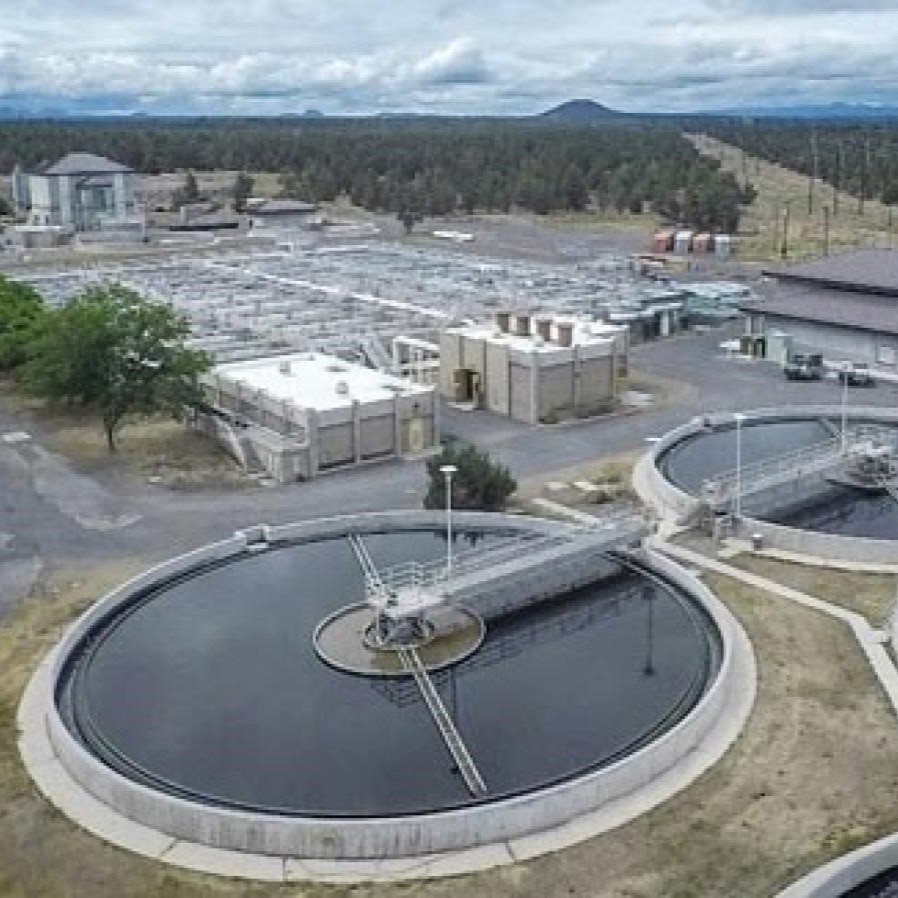
Tracing the virus through the sewers, S10E2
What can wastewater tell us about the spread of disease? Could the coronavirus’ signature RNA sequence tip public health officials to where the next COVID-19 outbreaks will occur? In this episode, we…

Trucking through COVID, S10E1
What’s life like for long-haul truck drivers in a COVID-19 world? We’ll get behind-the-wheel perspectives from driver (and musician) Paul Marhoefer and from Associate Professor Sal Hernandez who’s lo…
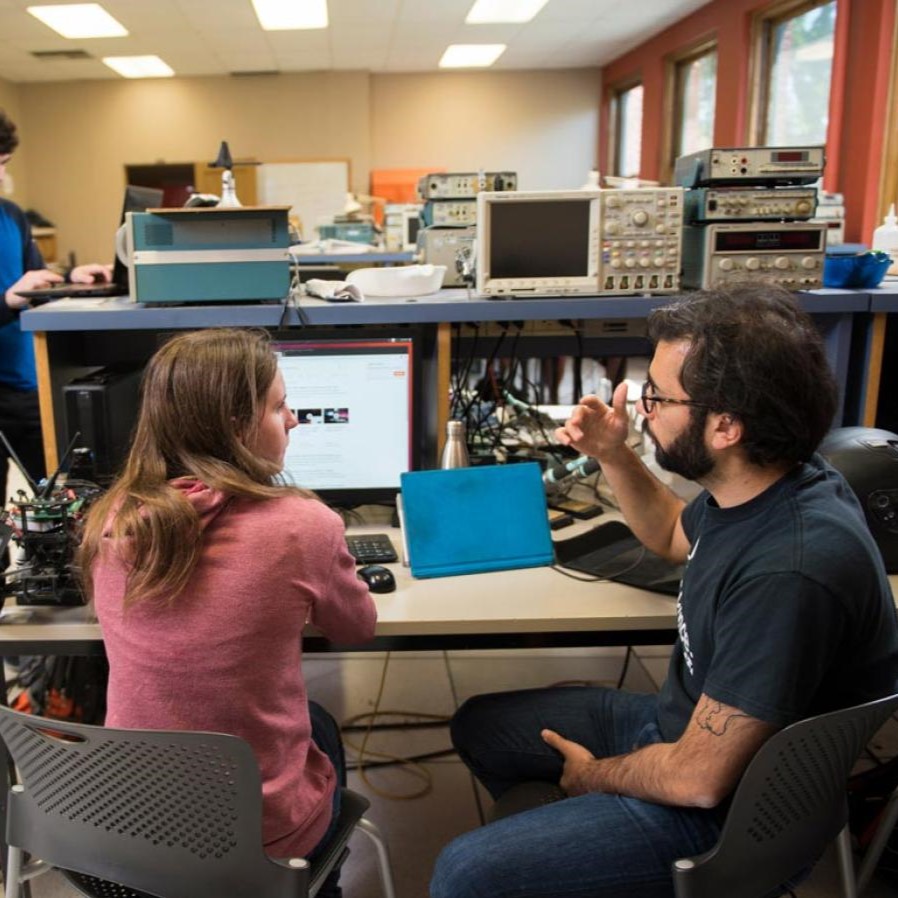
The age of autonomous vehicles, S9E7
Self-driving cars and planes are in our future. What are we doing to make them safe? Assistant Professor Houssam Abbas uses tiny race cars to test autonomous driving systems. And Oregon State graduat…

With a little help from my robot friend, S9E6
What will it take for robot assistants to become more integrated in our daily lives? Assistant Professor Naomi Fitter thinks they’ll need to master the physical aspects of social interactions, while …
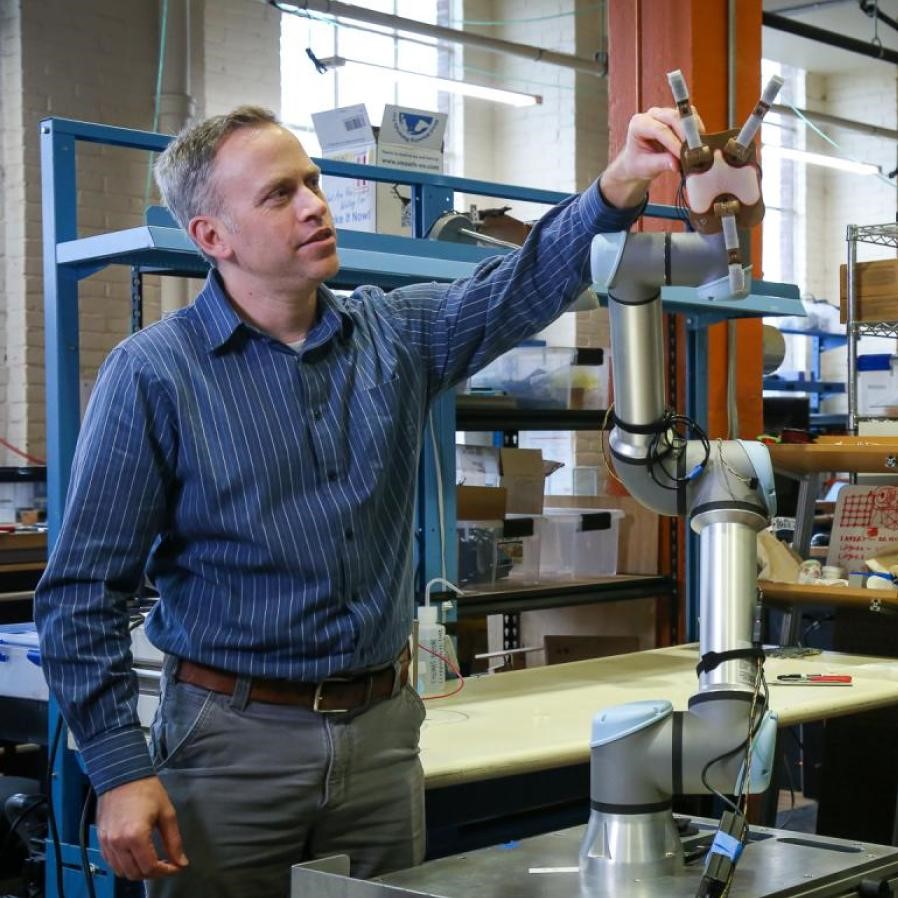
And on that farm, he had a robot, S9E5
Will robots someday replace farm workers? Do we want them to? Assistant Professor and agricultural robotics expert Joe Davidson talks about the potential benefits of using robots in agriculture, and …
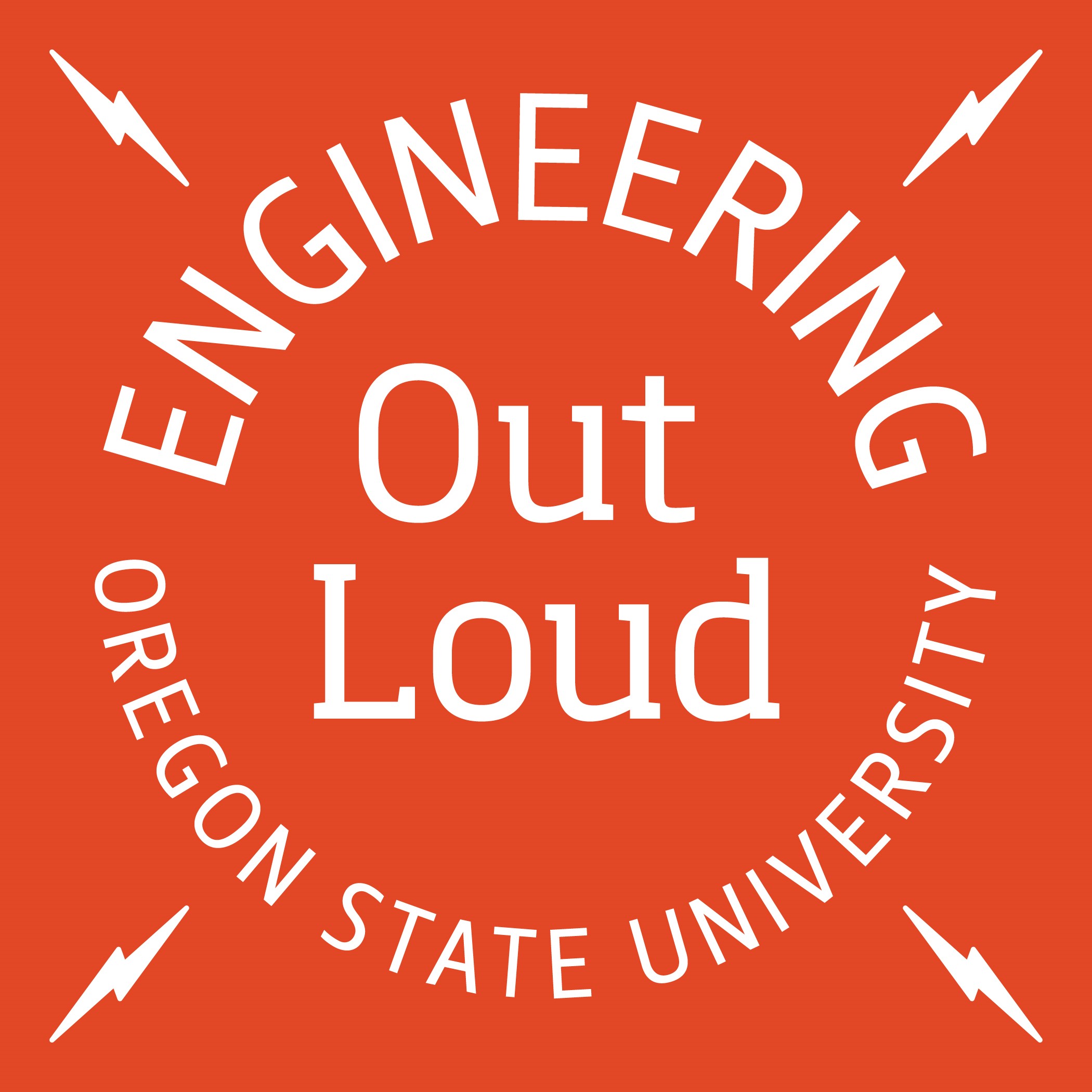
Socializing robots, S9E4
Why should robots have artificial social intelligence? According to Heather Knight, assistant professor of computer science, if robots are going to help in hospitals or work with people in factories,…
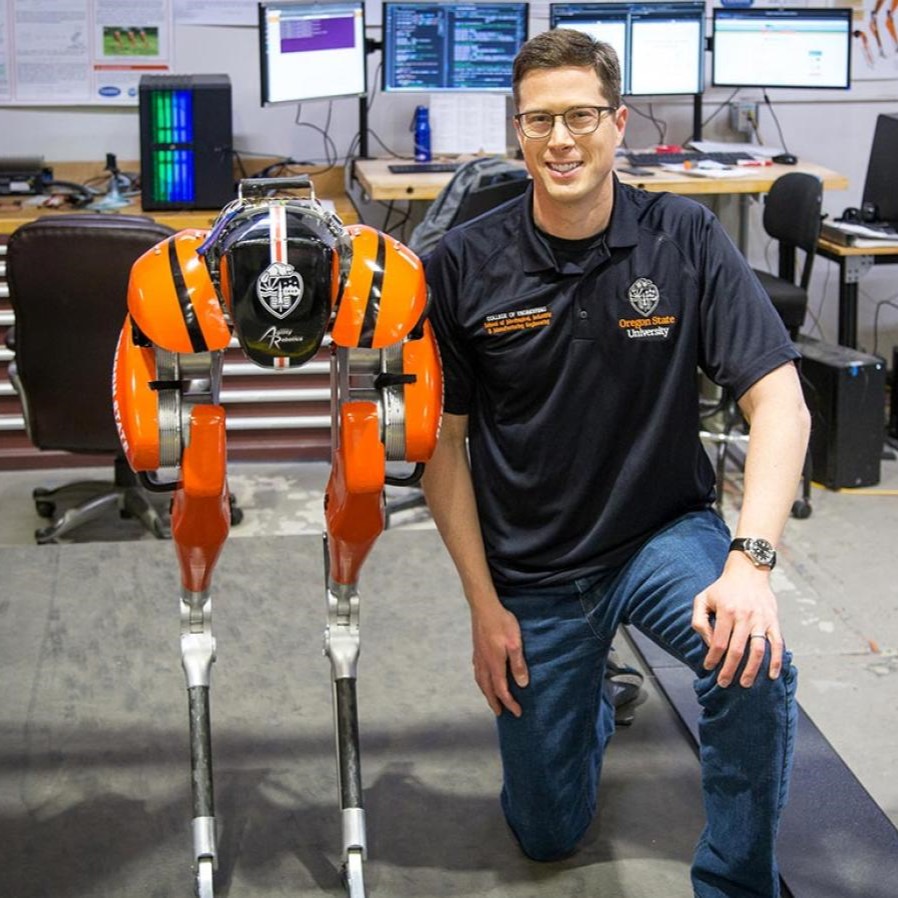
Robots: Will they walk among us? S9E3
For robots to be more useful around people, they’ll need to go where we go. But how? Associate Professor Jonathan Hurst thinks the answer is simple. Walking. But actually making a walking robot is no…

AI, explain yourself, S9E2
Can we trust artificial intelligence to make good decisions? The answer is a resounding maybe. More and more, society and individuals are entrusting AI to make potentially life-changing decisions. Ra…
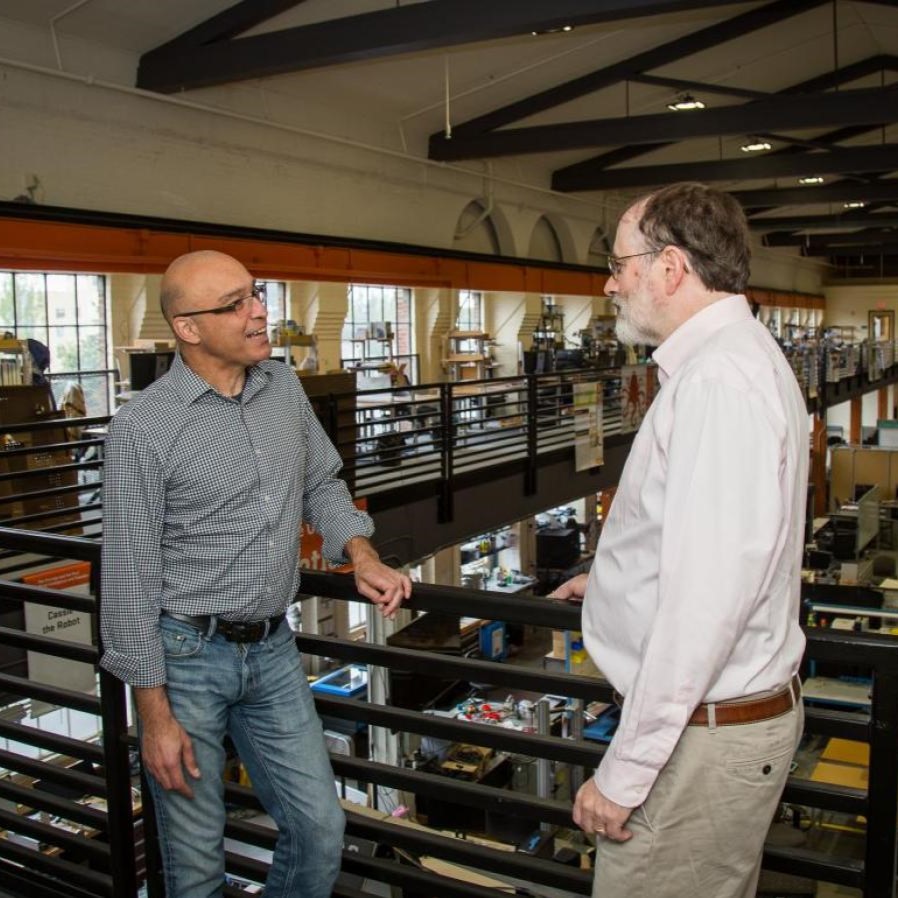
The beautiful music of robotics and AI, S9E1
How do you combine ethics, policy, and practicality into the design of revolutionary robotics and artificial intelligence systems? Researchers Kagan Tumer and Tom Dietterich are collaborating to fin…

Rebroadcast — Robots at sea, S1E2
Geoff Hollinger, associate professor of mechanical engineering, is teaching underwater robots to use human preferences to take on risk as they complete their scientific missions.

Keeping construction workers out of harm’s way, S8E6
What can be done to protect workers in one of the most dangerous industries on Earth? For much of his career, John Gambatese has studied, developed and evaluated a wide range of options designed to k…
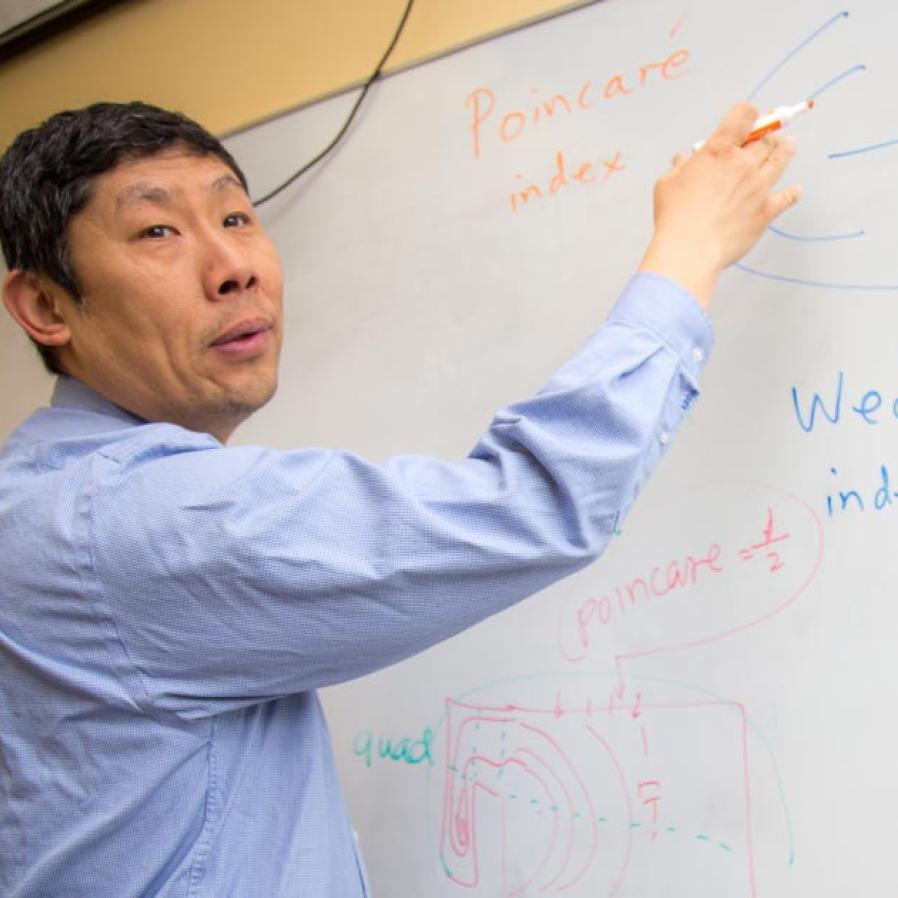
Rebroadcast — From Toy Story to tumors, S3E1
Advances in 3D graphics have made movies and video games more realistic, but can also have an impact on science. Associate Professor Eugene Zhang and Assistant Professor Yue Zhang describe their rese…
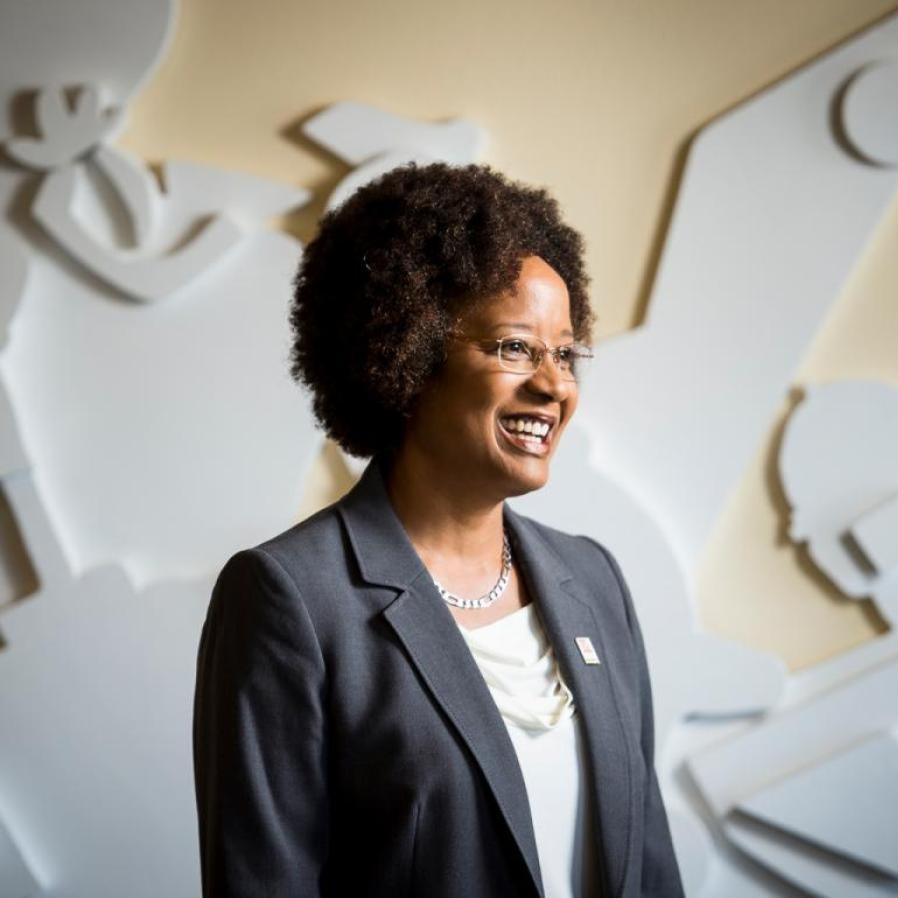
Detecting Parkinson’s early for better outcomes, S8E5
How can we help in the fight against Parkinson’s disease? Harriet Nembhard and her colleagues developed a sensor system to detect the disease early on, opening the door to earlier treatment and impro…

Robots without borders: Finding new ways to treat Ebola, S8E4
Aid workers put their lives on the line to treat patients with Ebola. Can robots help make their jobs a little easier and allow more people to survive the disease? Bill Smart, professor of robotics a…

Sticky and slippery science for biomedical applications, S8E3
What makes a frog’s tongue sticky, or a snake’s skin slippery? Joe Baio, assistant professor of bioengineering, looks to nature for substances that could provide clues to developing new biomedical ad…

Safer solutions for the national truck parking crisis, S8E2
Ever wonder why so many truckers park their rigs on highway off-ramps, in retail store parking lots and at other odd locations? It’s not their first choice, and it’s not the safest choice either, but…
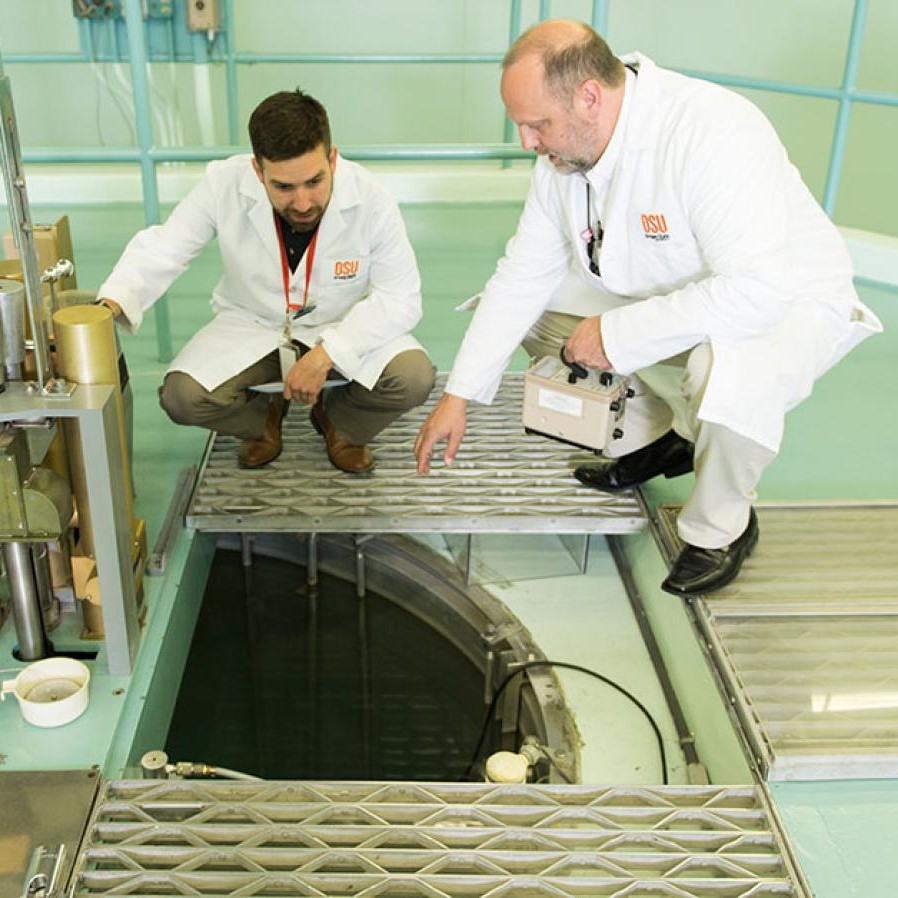
Making a medical isotope used by millions, S8E1
How can we support nuclear medicine efforts that help more than 40,000 people in the U.S. everyday? Researchers at the Oregon State University College of Engineering have developed a way to produce t…
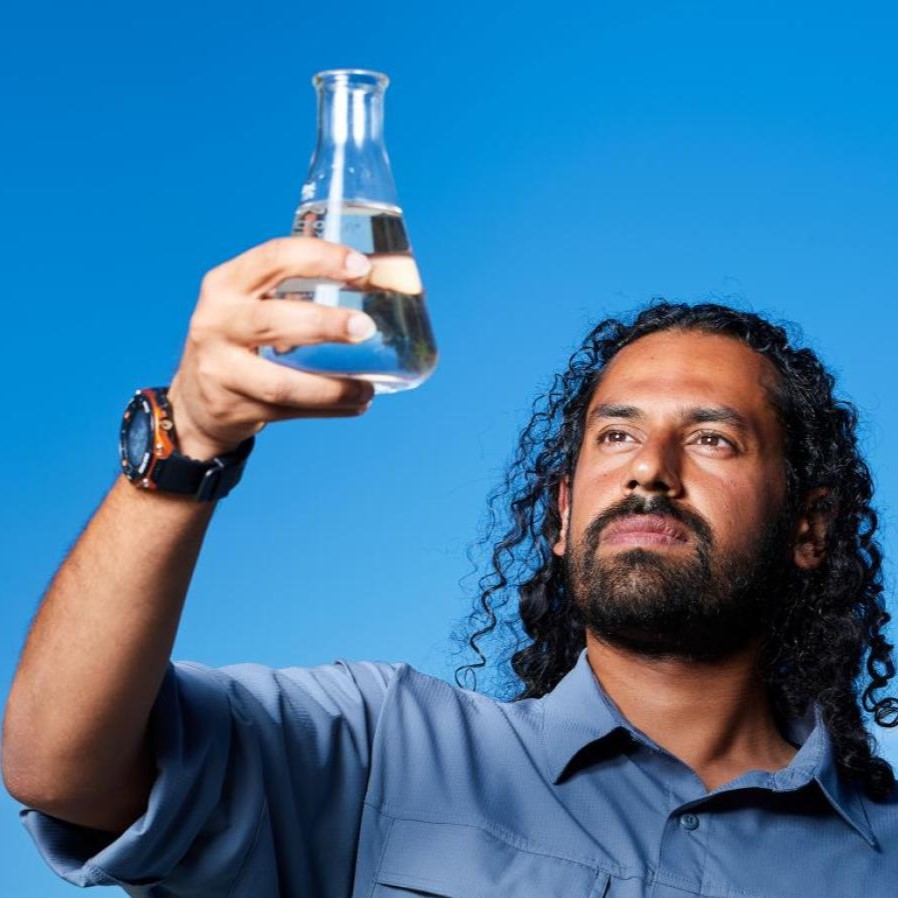
Turning Seawater into Sweet Water, S7E6
Can turning seawater into drinking water be a cost-effective way to provide clean, fresh water for the growing numbers of people facing water scarcity? Bahman Abbasi, assistant professor of mechanic…

Cleaning Contaminated Groundwater at the Umatilla Chemical Depot, S7E5
How can we remove toxic contaminants like TNT from groundwater? Jack Istok and Mandy Michalsen are using pioneering bioremediation and bioaugmentation methods developed here at Oregon State to restor…

A clean water solution for the developing world, S7E4
How do you ensure a product designed for the developing world is useful for the people it’s intended to help? A team of researchers, led by Nordica MacCarty, assistant professor of mechanical enginee…